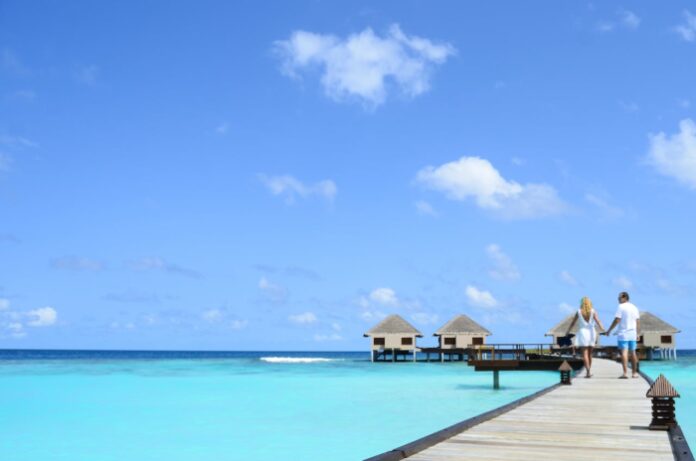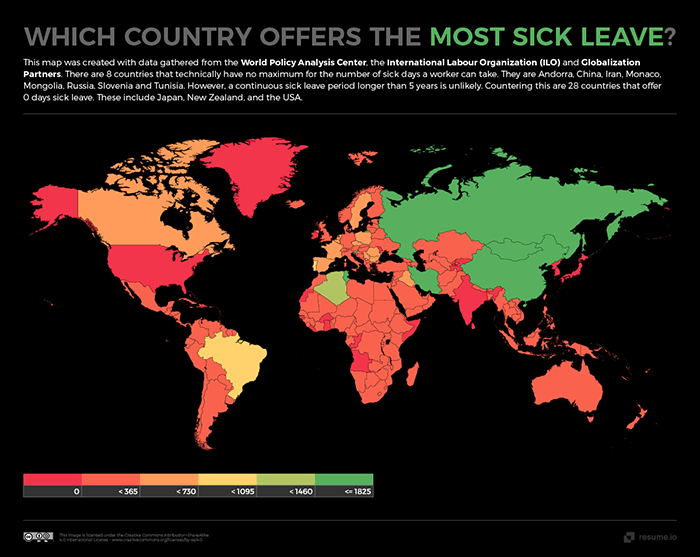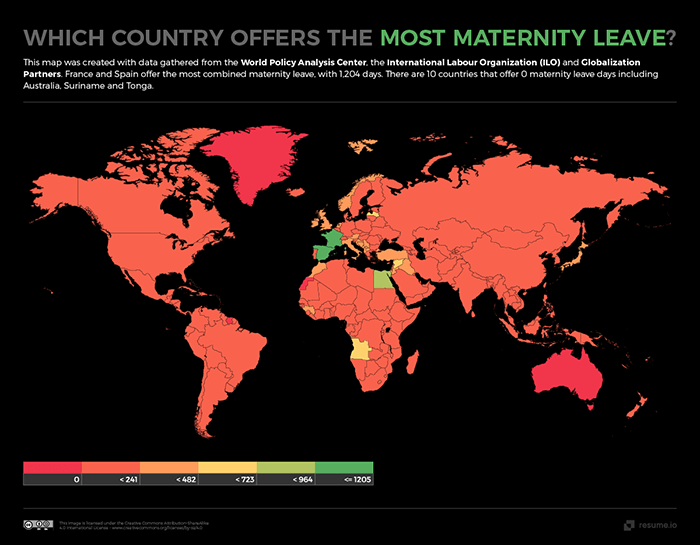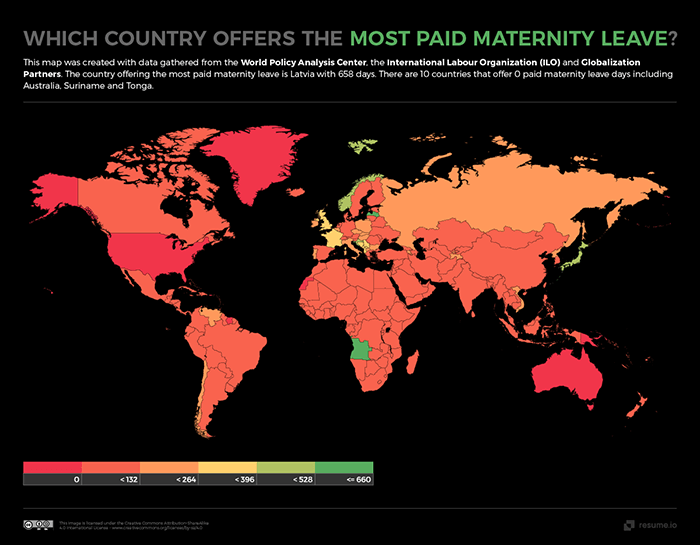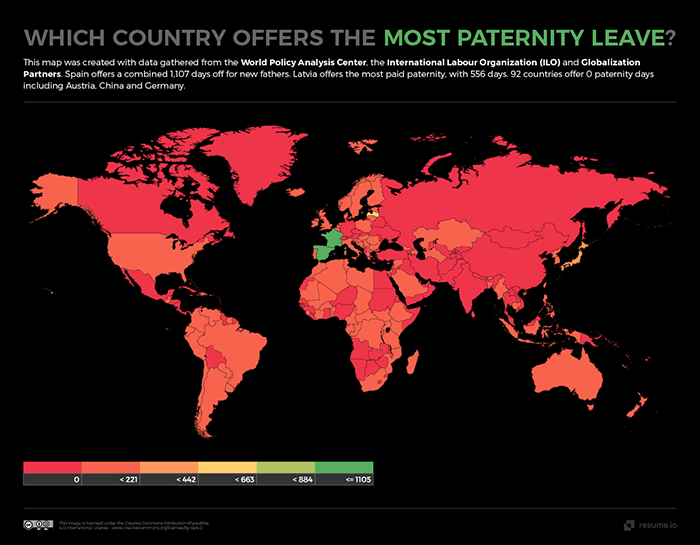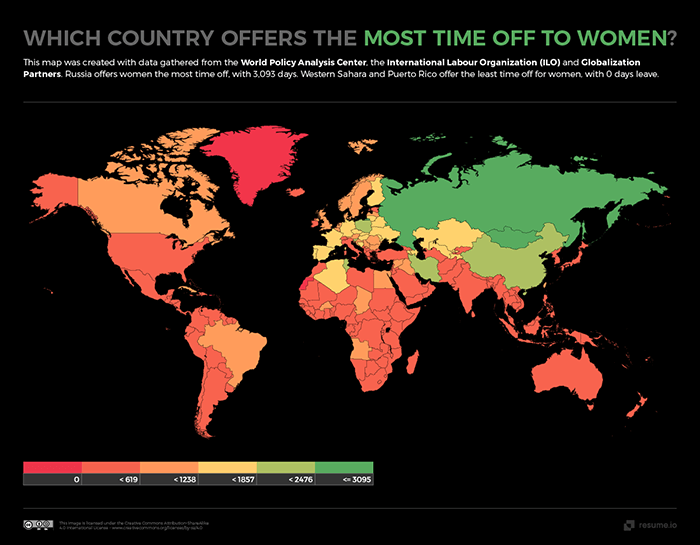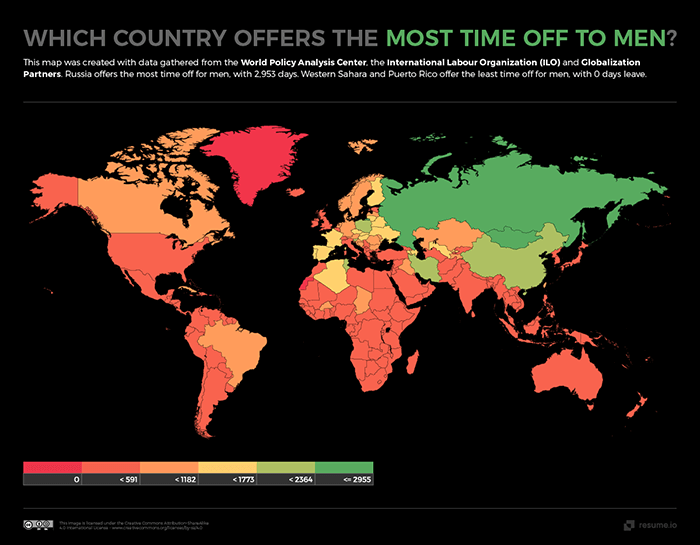All around the world, two constants are the need to work to earn money and the fact that we will all need to take time off through illness, pregnancy, childbirth or just because it’s nice to not have to work all the time, even for those lucky enough to do it from their own homes. What isn’t constant is the amount of time each country allows for time off work, both paid and unpaid, with some remarkable differences.
Countries like the USA have surprisingly few laws in place to protect how much time companies have to allow their staff to take as a vacation or even when it comes to paid maternity leave. This doesn’t mean that people there can’t take them, it’s just that the laws are put in place at state level and much of the responsibility for offering paid leave falls to the companies rather than the government.
However, it’s still interesting to see how these areas are dealt with around the world, so research has been done using data from the World Policy Analysis Center, the International Labour Organization and Globalization Partners to create maps. Which countries really give the most time off and where are you going to struggle to get a break from work when you need it?
Which Countries Have The Most Public Holidays?
Public holidays are useful because even if you don’t have much time off in your contract, you’ll still get these days off, as long as you live in a country where there are public holidays – and of course it helps if they’re paid. Just ask the people of Iran, where they have an incredible 27 public holidays, but none of them are paid, while the USA only has 10 but all are paid.
Cambodia is the place to be though if you like to be paid to do nothing, as it has 27 paid public holidays a year, with titles as varied as Victory Over Genocide Day, Children’s Day and International Women’s Day.
Which Countries Offer The Most Sick Leave?
Everyone needs to take time off sick every now and then, it’s just a fact of life. But it’s not a fact that you’ll always be paid for time when you’re not at work, as any freelancer working from home can testify. And when it comes to long-term sick pay, some countries are better than others at offering statutory pay to help you stay on top of things.
Russia and China might not be the first two countries you’d have thought of when it comes to this, but they’re actually leading the way with both allowing pay for the entire length of the illness. The USA has no such law at all at federal level.
Which Countries Offer The Most Maternity Leave?
The need for women to take time off after giving birth is a self-evident one, particularly for those who don’t intend to give up their careers but still want to have time to bond with their newborns. However, in countries like Australia and Tonga, there’s no statutory government pay available for maternity leave. The USA doesn’t it either but does allow for some unpaid leave. The place to be a new mom though is Latvia, where they can have nearly two years off with pay.
Which Countries Offer The Most Paternity Leave?
As you might expect, paternity leave is even more difficult to come by than maternity leave, with many countries, like Germany, not offering it at all, even in terms of unpaid leave. Some, like the UK offer 14 days of statutory paternity pay to give new dads time to get adjusted to their new family circumstances and lack of sleep, but if you really want to take a break, France and Spain let you have over 1,000 days off, though sadly not all paid.
Which Countries Offer The Most Time Off Overall?
There are some slight differences between the number of days available for women and men across countries, but the clear winner for potential time off work is Russia, which allows up to 3,093 days for women and 2,953 days for men. Unfortunately for the people of Western Sahara and Puerto Rico there’s no time off legislated for anyone at all, so anyone working there will be reliant on their employers to be generous.
Whether you work in an office or from home, we all rely on the opportunity to not work when we can’t physically or mentally do it. Even if it’s just a vacation, it’s hugely beneficial to our wellbeing to be allowed to go without costing ourselves our earnings. Unless it’s written into our contracts, we need governments to specify how much time we’re allowed to take off when we’re ill or have had a baby. And, as you can see, these rules are applied very differently around the world.
Find a Home-Based Business to Start-Up >>> Hundreds of Business Listings.











































